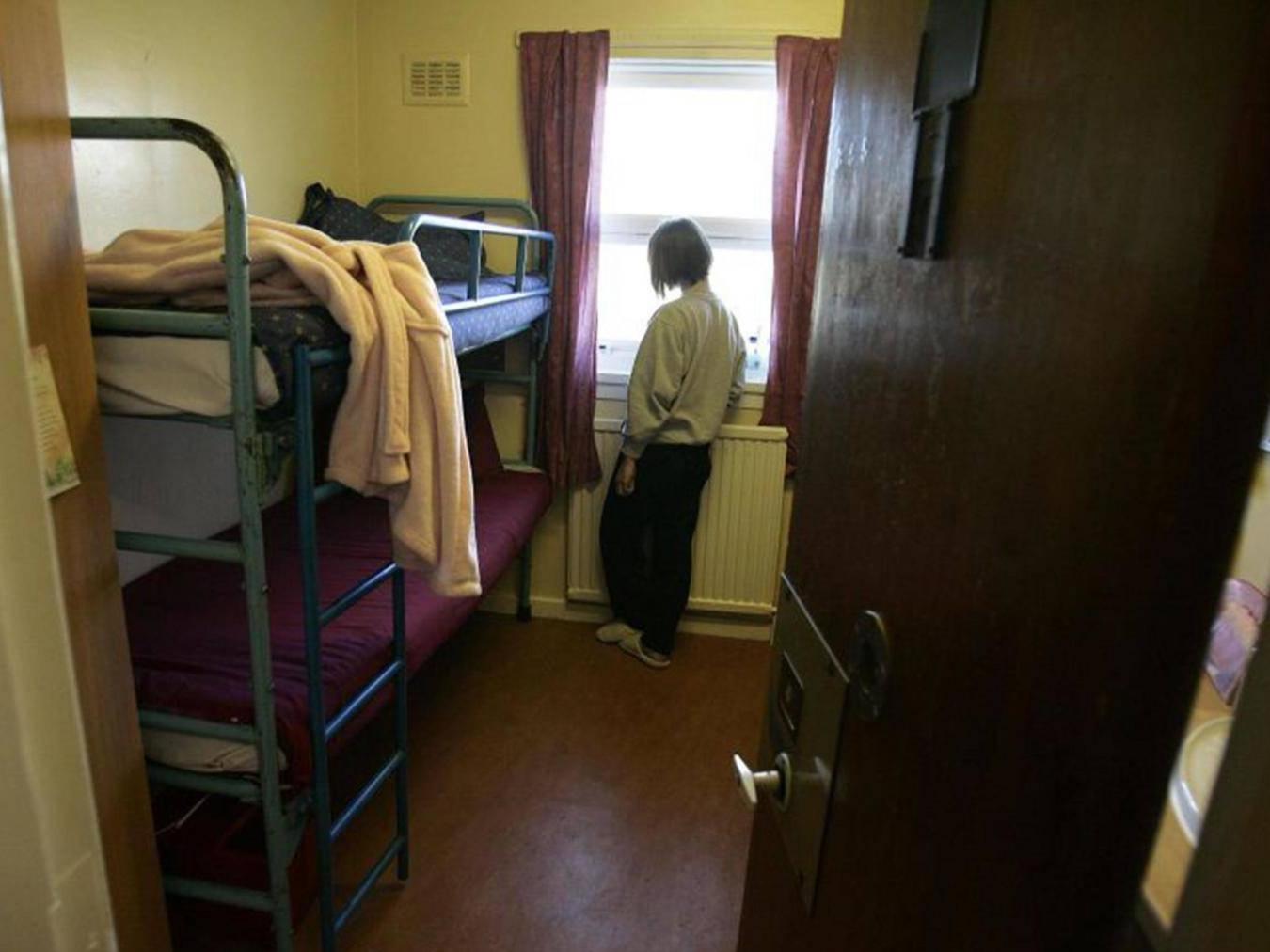Inspectors call for easing of ‘severe regime restrictions’ in women’s prisons as inmates’ physical and mental health deteriorating
‘Many prisoners had not seen their children for over three months,’ says HM Chief Inspector of Prisons

Your support helps us to tell the story
From reproductive rights to climate change to Big Tech, The Independent is on the ground when the story is developing. Whether it's investigating the financials of Elon Musk's pro-Trump PAC or producing our latest documentary, 'The A Word', which shines a light on the American women fighting for reproductive rights, we know how important it is to parse out the facts from the messaging.
At such a critical moment in US history, we need reporters on the ground. Your donation allows us to keep sending journalists to speak to both sides of the story.
The Independent is trusted by Americans across the entire political spectrum. And unlike many other quality news outlets, we choose not to lock Americans out of our reporting and analysis with paywalls. We believe quality journalism should be available to everyone, paid for by those who can afford it.
Your support makes all the difference.Inspectors have raised serious concerns over the strict visiting restrictions in women’s prisons amid the coronavirus crisis, preventing inmates from seeing their children.
Her Majesty’s Inspectorate of Prisons, which carried out visits at Send and Downview Prison and Young Offender Institution – both women’s prisons in Surrey, found many prisoners said their physical and mental health was deteriorating.
Peter Clarke, HM chief inspector of prisons, warned that the need to implement a less “restricted regime” was urgent.
Mr Clarke said: “The suspension of visits has had a particularly acute impact in the women’s estate; many prisoners in Send and Downview had not seen their children for over three months. Video calling provision had only recently been rolled out in both sites, which women appreciated.”
He said the prisons had “not kept pace with the easing of restrictions in the community” and raised concerns that “national guidance” for lifting restrictions in jails was still being decided on.
Frontline service providers have frequently warned that women in prison are often the victims of more serious offences than those for which they have been convicted. A recent report from the Prison Reform Trust found 80 per cent of women in jail were there for non-violent offences.
Although female prisoners are legally allowed to keep their baby for the first 18 months in a secure mother and baby unit, the vast majority of children are separated from their mothers.
Inspectors found only two prisoners had actually been released despite prison staff spending substantial amounts of time selecting inmates for two early release schemes.
NHS England, which polled inmates in the jails, found more than two thirds said their mental health had deteriorated since lockdown was introduced and three quarters said their physical health had worsened.
Visits are still banned at both jails and many inmates only have about an hour-and-a-half out of their cell each day – with education lessons still suspended at both prisons. While prisoners at Downview could also attend four one-hour outdoor gym sessions a week, inmates in Send could only attend one or two such classes.
It comes after MPs recently warned the public health crisis has exacerbated issues around children being separated from their imprisoned mothers due to the government failing to properly deliver its promise to release female inmates.
A report by the Joint Committee on Human Rights released earlier this month found the right to family life of up to an estimated 17,000 children whose mothers are in prison is placed at risk by the ban on prison visits during the pandemic, and that ministers’s early release programme had failed to reunite large numbers of imprisoned mothers with their children.
Harriet Harman, chair of the committee, told The Independent a “blanket ban on visits” breached children’s rights and argued separating a child from their mother is harmful.
The Labour MP for Camberwell and Peckham, said: “When sentencing, the judge would have assumed visits were possible. That changed with lockdown and the visits ban, so temporary release is the humane thing for the government to do for the sake of their children. Most mothers in prison shouldn’t be there anyway. We should find other ways to deal with mothers who commit crimes rather than sentence their children to misery, causing lifelong damage.”
The report calls for the government to stop the ban on children visiting and look into the temporary release of all low-risk mothers with children – as well as releasing pregnant women and those who are imprisoned with their children.
Inspectors in the latest report noted managers had implemented effective measures to curb coronavirus spreading, noting that during their visit, there was no evidence the virus had been present in either of the jails for several weeks.
Mr Clarke added: “This report highlights positive practice in several areas and it is a credit to staff that most prisoners we spoke to were positive about staff-prisoner relationships, despite the significant restrictions in place.”
However, inspectors argued there was an “urgent need to ease severe regime restrictions” which have been enforced since the coronavirus crisis surfaced, as they called for national guidelines to be more coherent.
All visits to jails have been banned since March due to the pandemic, leading to prisoners having no way to see their children, partners, relatives or friends. Fathers in prison are also coping with the emotional strain of not being able to see their children due to the public health emergency.
Join our commenting forum
Join thought-provoking conversations, follow other Independent readers and see their replies
Comments